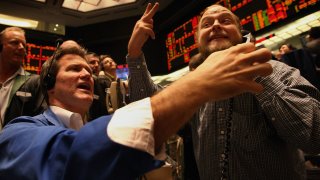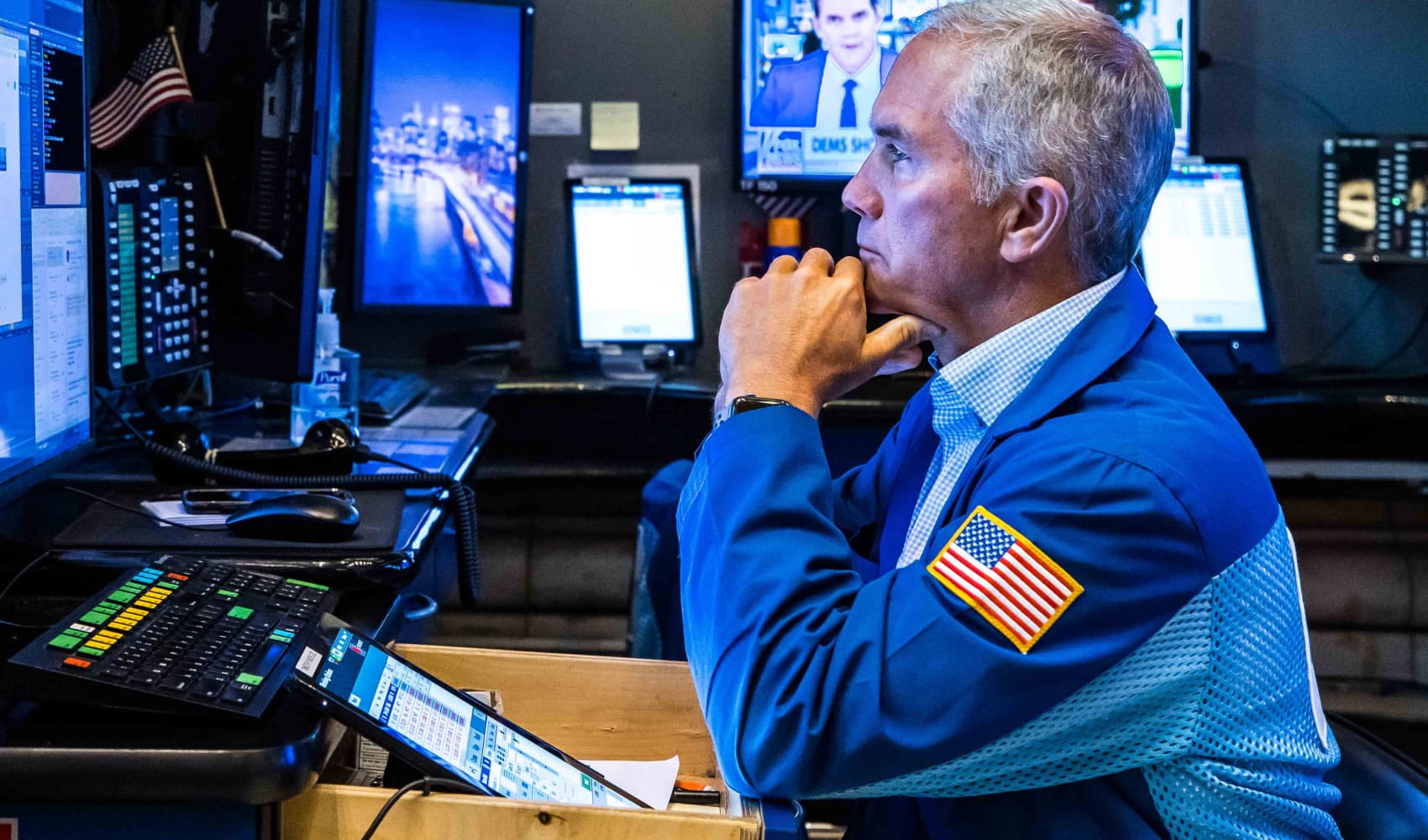
The 10-year Treasury yield was little changed on Thursday after data showed fewer Americans filed for jobless claims than expected last week.
The yield on the benchmark 10-year Treasury note rose slightly to 1.525% in late afternoon trading. The yield on the 30-year Treasury bond rose to 2.275%. Yields move inversely to prices.
The Labor Department on Thursday reported that first-time filings for unemployment insurance in the week ended March 6 totaled a seasonally adjusted 712,000, below the Dow Jones estimate of 725,000.
Continuing claims again decreased, falling 193,000 to 4.1 million, another pandemic-era low, in data that runs a week behind the headline claims number.
Get New England news, weather forecasts and entertainment stories to your inbox. Sign up for NECN newsletters.
It comes after a key 10-year Treasury auction Wednesday eased investor concerns about a fall in demand for government debt.
Investors watched Thursday's auction of $24 billion of 30-year bonds as a gauge on demand for longer duration government debt, and yields retreated slightly after the auction closed. Auctions were also held Thursday for $30 billion of four-week bills and $35 billion of eight-week bills.
Stimulus package
Money Report
President Joe Biden signed a $1.9 trillion stimulus bill into law that will send a round of $1,400 checks to Americans and earmark billions for vaccine distribution efforts.
When it comes to the stimulus package, Willem Sels, chief investment officer, private banking and wealth management at HSBC, said the bond market was trying to assess whether it will prove to be inflationary. Bond yields have been rising rapidly over recent weeks amid fears about rising inflation.
"However, in our view, inflation is mainly rising because of oil prices, temporary supply side bottle necks and the weakening of the US dollar in recent months," Sels said.
The U.S. government's spending package was actually "probably more deflationary than inflationary," he argued, adding that he believed the bond market had "sold off too much in anticipation of the fiscal package."
Meanwhile, Charalambos Pissouros, senior market analyst at JFD Group, highlighted that while February's consumer price index, out Wednesday, rose year-on-year as expected, the core rate actually ticked lower.
"This adds more credence to the Fed's view that it will take some time for inflation to rise and stay above 2% for some time," he said, pointing to the central bank's projection that this will happen in the years after 2023.
"It also validates our view that the recent retreat in equities due to higher yields was just a corrective phase, and that they were likely to rebound and continue trending north," Pissouros said.
Not everyone is convinced, however, with ING senior rates strategist, Antoine Bouvet, telling CNBC on Wednesday that the 10-year U.S. Treasury yield was likely to hit 2% by the end of the year but could spike "well above" that in the second quarter.
— CNBC's Jesse Pound contributed to this report.






